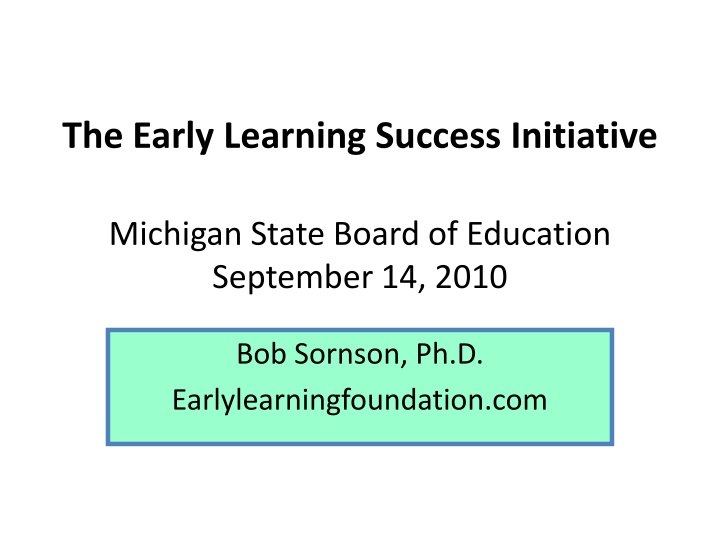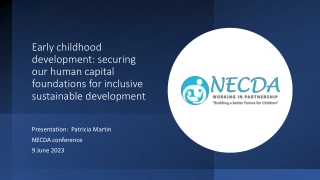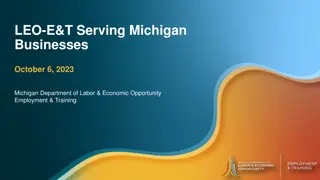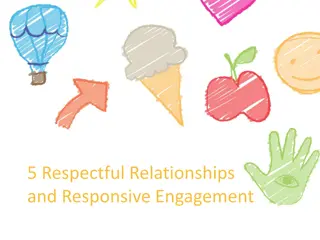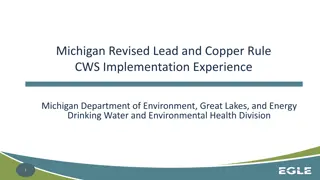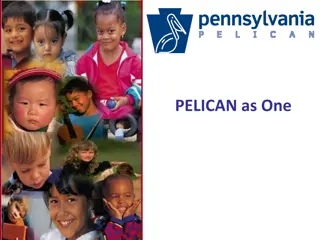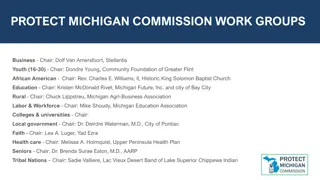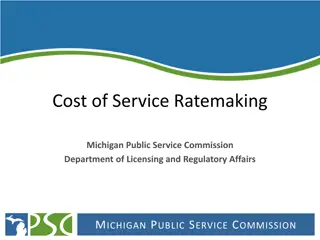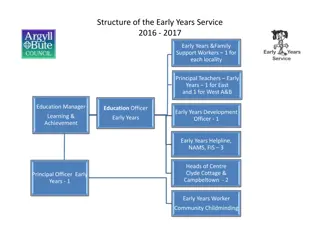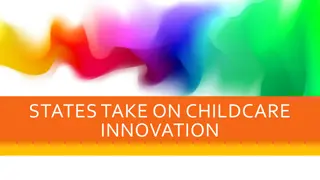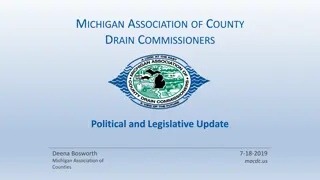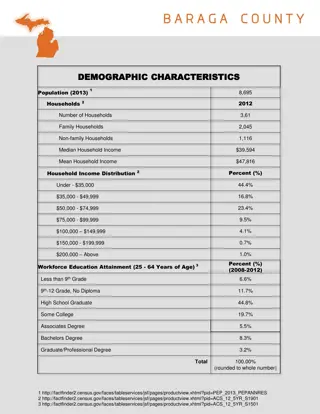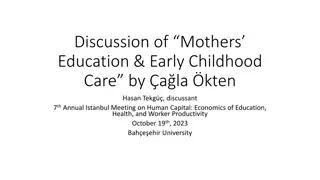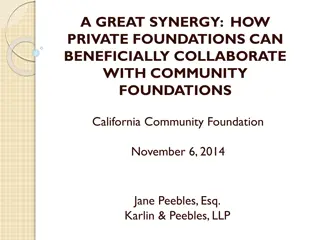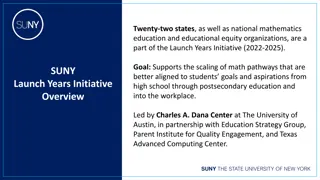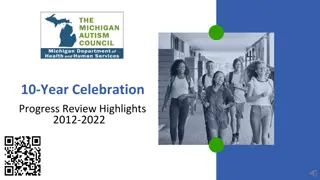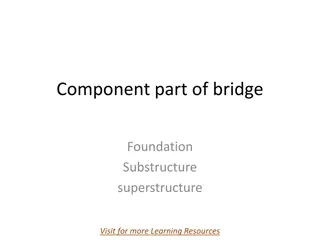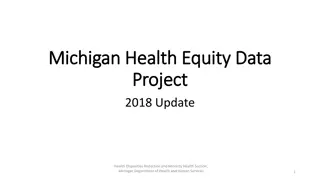Early Learning Success Initiative in Michigan: Building Foundations for Education
The Early Learning Success Initiative focuses on the critical early childhood years as the foundation for future success in learning. It discusses the importance of developing a pattern of learning success during the initial school years and provides insights into reducing special education placements. Data comparisons and assessments from various elementary schools are also presented.
Download Presentation

Please find below an Image/Link to download the presentation.
The content on the website is provided AS IS for your information and personal use only. It may not be sold, licensed, or shared on other websites without obtaining consent from the author.If you encounter any issues during the download, it is possible that the publisher has removed the file from their server.
You are allowed to download the files provided on this website for personal or commercial use, subject to the condition that they are used lawfully. All files are the property of their respective owners.
The content on the website is provided AS IS for your information and personal use only. It may not be sold, licensed, or shared on other websites without obtaining consent from the author.
E N D
Presentation Transcript
The Early Learning Success Initiative Michigan State Board of Education September 14, 2010 Bob Sornson, Ph.D. Earlylearningfoundation.com
Early Learning Success Truths 1.The pattern of learning success developed during the first few years of school is the foundation upon which future learning success is built. 2.The early childhood years are the most important learning phase in a child s lifetime.
The Early Learning Success Initiative Original sites in Northville, MI Wayne RESA model sites SAVE legislation in Michigan encouraged districts to develop model sites of practice Facilitator training (two year process and 12 areas of proficiency) Wayne County model districts (full implementation over a three year period).
Reduction in Rates of Special Education Placements Comparison of Michigan Total Special Education Identification Rates to Northville Public School Rates, 1992-93 to 2008-09. 16 10.811.111.4 11.611.912.212.512.813.2 13.413.914.2 14.214.6 14.4 14.3 14.4 10.2 9.9 9 8.8 8.5 8.5 8 7 14 12 10 8 6.7 6.6 6.18 5.9 5.9 5.655.38 5.45 5.3 6 4 2 0 1992- 93 * 1993- 94 1994- 95 1995- 96 1996- 97 ** 1997- 98 1998- 99 1999- 00 *** 2000- 01 2001- 02 2002- 03 2003- 04 2004- 05 2005- 06 2006- 07 2007- 08**** 2008- 09 * Early Intervention training begins. ** IST Pilot at Silver Springs Elementary begins. *** Full elementary implementation of IST process begins. **** Renewed alignment of IS begins. Michigan Northville
Reduced Referrals to Special Education Bulman Elementary, 2004-09 80 70 60 50 40 30 20 10 0 2004-05 2005-06 2006-07 2007-08 2008-09 2009-10 Referrals to Instructional Support Referrals to Sp. Ed. (test) Certified Caseload (excluding speech & center based) Special Education Percentage (excluding speech & center based)
Simpson Central Elementary School STAR Early Literacy Assessment (Renaissance Learning Product) Reader Designation Standard Score Range When Expected Emergent Reader 300-674 Middle to End Kindergarten Transitional Reader 675-774 Beginning First Grade Probable Reader 775-900 By End of First Grade End of year score Average Standard Score in 2007-2008 Average Reader Designation Average Standard Score in 2008-2009 Average Reader Designation Class A 606 Emergent 684 Transitional Class B 608 Emergent 700 Transitional Class C 632 Emergent 708 Transitional Kindergarten Class Composition 2007-08 2008-09 Emergent 80% 32% Transitional 16% 62% Probable 4% 7%
Percentages of Reading Level: DRA2 Kindergarten 2007-08 2008-09 2009-10 Below Grade Level 48 27 12 On Grade Level 29 34 42 Above Grade Level 22 38 46 First Grade Below Grade Level 50 31 20 On Grade Level 12 13 8 Above Grade Level 38 56 72
Percentages of Reading Level: DRA2 Second Grade 2007-08 2008-09 2009-10 Below Grade Level 64 44 15 On Grade Level 12 8 8 Above Grade Level 24 48 77 Third Grade Below Grade Level 49 41 19 On Grade Level 13 22 21 Above Grade Level 38 37 60
Early Learning Success Initiative 1. Build a safe, connected classroom culture 2. Build essential skills (K-3) Identify essential outcomes, considering the development of the whole child Use universal screening, progress monitoring and formative assessment to vigilantly monitor progress toward essential skills Offer responsive instruction, at the student s instructional level, toward these skills 3. Develop a support team structure to offer supports to teachers and students without waiting for severe deficits to develop
Early Warning! Why Reading by the End of Third Grade Matters Annie E. Casey Foundation, 2010
